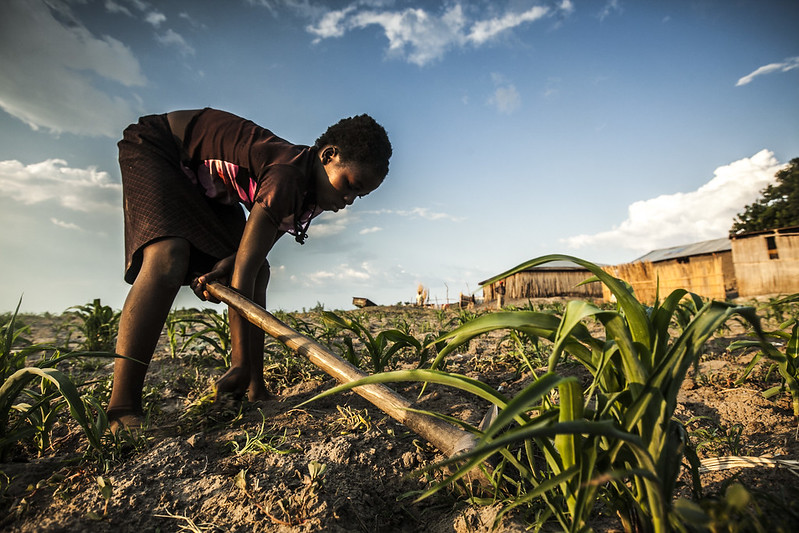“My research must be true, even if it means criticism”

Weeding maize, Mongu, Western Zambia. Photo: Felix Clay/Duckrabbit, creative commons.
Development projects do not necessarily always improve lives for people on the ground, even if NGOs and donors call them successful. This is something NAI researcher Bridget Bwalya Umar has learnt from years of field work in rural Zambia.
Umar started her career in the natural sciences and then moved on to social sciences. “It was a challenge in the beginning”, she says. “For instance, I had to learn to think the way an anthropologist thinks”.
“Now, l appreciate it a lot – it gives me a broader perspective on things. I can understand the technical science behind new seeds and tools, but now also the reasons why farmers perhaps do not use new techniques”, Umar remarks.
However, agricultural development is not only about natural and social sciences – politics is also a major ingredient. Umar is interested in policies around development interventions, what she calls political agronomy.
“Some things being promoted to farmers are clearly not optimal, but various actors have interests in promoting them. They can be companies, NGOs or even the government. For instance, in Zambia farmers grow maize in areas where climate and soil are not favourable for the crop. This is because the government subsidises maize farming. But focus on other crops could be more effective, less costly and yet provide better yields”, Umar observes.
.jpg)
Bridget Bwalya Umar.
Her years of conducting research in rural parts of Zambia have given Umar the insight that what project reports state is not necessarily always true. Even if farmers attend workshops and sign participation lists, it does not mean they use new farming approaches or techniques in the intended way.
“To find out if a certain project has been successful one must go back to the villages several years afterwards. Do the farmers still use the project method? If so, it was really successful, but often I find it was not, sorry to say”, Umar adds.
The incentives that development projects bring are another issue. Small things like mobile phones, T-shirts and motorbikes can make people support projects – for the incentives, not the outcome, according to Umar.
“The same thing applies higher up the hierarchy. Municipalities and state departments are also keen to attract NGO projects and donor money – all play the same game. Sometimes I fear we have messed up development”, Umar notes.
For this reason, researchers and consultants carrying out evaluations of development projects have an important role, she points out. They must take the time to really understand the context.
“I cannot risk publishing something incorrect. What if policymakers read my report and take decisions based on my incorrect data? That could have a severe impact. My research must be true and correct, even if it means criticism in my evaluation puts an end to a project – that would be better than continuing to allocate resources to a project that does not benefit the intended beneficiaries”, Umar concludes.
TEXT: Johan Sävström
